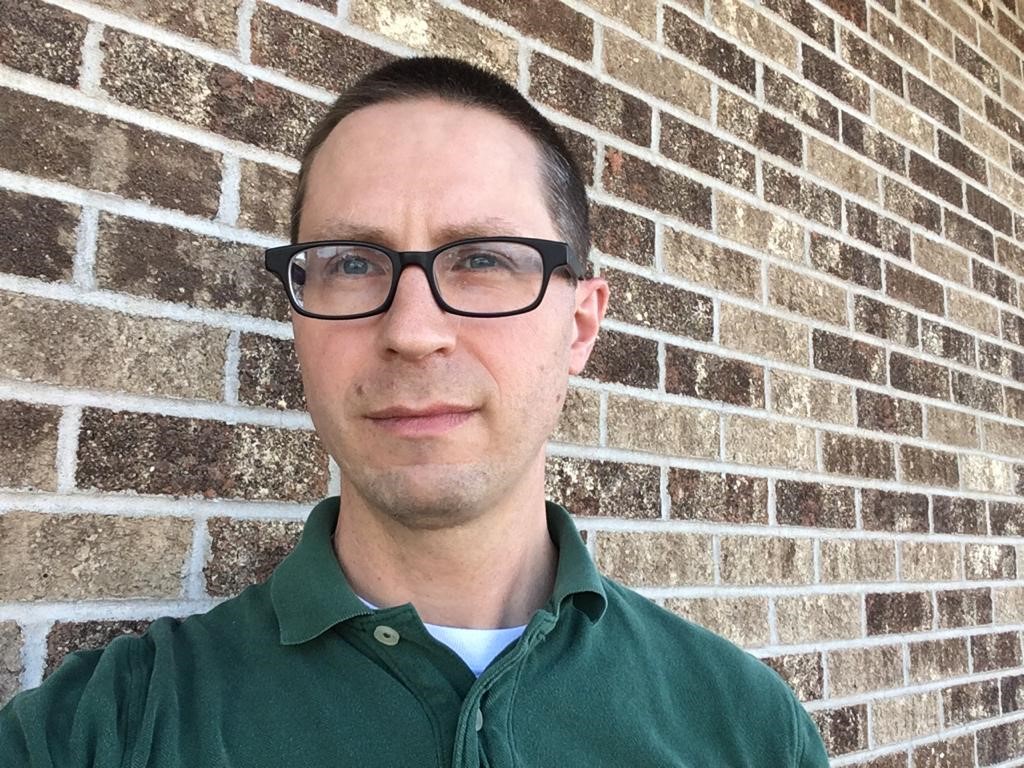How LKYSPP alumnus Corey Christianson, owner of KC’s Country Market, is serving and feeding his community in the US during this challenging time.
[ALUMNI-INFO TEXT="When the Covid-19 crisis began in March in the US, Corey Christianson (MPA 2010) knew what he had to do. Working in Vietnam soon after the 2003 SARS epidemic had taught him that mask wearing would be essential during the coronavirus outbreak.
Reacting quickly, the 43-year-old implemented several safety measures at his two grocery stores in his home state of Minnesota. They were likely the first outside Minneapolis to install a plastic barrier at their checkout lane, and clean between every customer.
He and his staff at KC’s Country Market wore masks early on and encouraged customers to do so. They have since given out boxes of disposable masks and over 500 handmade masks. His sister-in-law and mother sewed hundreds of masks, while local residents also donated handmade masks.
Says Corey, who describes himself as a worst-case scenario planner: “It was our way of protecting the community. We have many elderly folks here. And if we got sick ourselves, we would have to close the stores as we don’t have sick leave either.”"][/ALUMNI-INFO]
So far, there has been one confirmed case of Covid-19 in his area. As of 18 May, Minnesota recorded a total of 16,372 confirmed cases and 731 deaths (https://bit.ly/3e3mDy8). Testing for the coronavirus remains limited there in the Midwest and the rest of the US.
Corey’s responsibilities have changed too, requiring him to multitask even more during the course of his 90-hour workweek. With changing freight delivery times, for instance, he has had to unload freight and stock the shelves himself. He also puts together orders for curbside pickup and volunteers to deliver to housebound residents.
[ALUMNI-QUOTES TEXT="His business now faces several challenges. Maintaining the health of the community is one. “Our fear is that even when we do everything we can to protect ourselves, we could still end up getting infected. This is why we are so strict with mask wearing at our stores as we cannot guarantee the health of people who come in.”
Another challenge is food scarcity. Outbreaks at meatpacking facilities have led to plant closures and a severe shortage of protein. This has limited his business to only a few suppliers and almost tripled the cost of pork and beef.
His work with the University of Minnesota aims to resolve that issue, by providing industry input to positively influence state and federal policies that support access to healthy food options in rural communities. Corey is a consultant with the university’s Regional Sustainable Development Partnerships’ Support Our Stores team, which offers technical assistance to grocers in to avoid being crushed by Walmart, Amazon and other retail giants."][/ALUMNI-QUOTES]
He says: “Our challenge is ensuring our community grows more resilient to sustain their health for the longer term. Our goal is to stay healthy for as long as possible, and it is easier with a coordinated effort.”

Corey putting together an order for a curbside pick-up
Subhead: The heart of a community
In 2011, after years of working in international development in Vietnam and completing his master’s at Lee Kuan Yew School of Public Policy (LKYSPP), Corey moved back to Minnesota to buy the grocery business that his parents had previously owned.
As the owner of KC’s Country Market, he runs two outlets in a rural county. One is in Badger, a small town that is a 6.5-hour drive from the Twin Cities of Minneapolis and St. Paul. The other is in Greenbush, 15 minutes away from Badger. Badger has about 500 residents, Greenbush has 800 and the surrounding county has about 16,000. Corey grew up in Badger and Minneapolis.
The stores have long been a welcoming hub for the local community, schools, farms and factories, offering comfort and sustenance. Since taking over the business, he and his wife, Ket, have added new features, such as an Asian section, home delivery, menu planning, cooking classes and occasionally free samples.
“We think of ourselves as stakeholders in the community and are keen on ensuring the health of the people here by ensuring we supply them with fruit, vegetables and healthier produce,” says Corey, who is also a project planner with Badger’s planning commission and a city council member.
He says the year ahead will be tough for the community as the two towns had already taken a beating even before the crisis. Recent flooding badly damaged the fields and some farmers struggled to plant crops in the face of low commodity prices, while the nearby factories are threatened by layoffs and shutdowns.
Yet Corey, who studied social entrepreneurship and sustainable development in his time at LKYSPP, remains upbeat. The virus is spurring him to take his business online sooner than planned, and he intends to add new features with one store undergoing renovation with a possible addition soon.

Yet Corey, who studied social entrepreneurship and sustainable development in his time at LKYSPP, remains upbeat.
His advice to his juniors at LKYSPP? “Don’t be afraid of change — take disruption and innovate with it. We are close to death every day in business, and if we don’t innovate, we are done. This virus is a real disruptor. Embrace change and find ways to capitalize on them for the greater good.”
He remembers fondly his meetings with professors and late-night discussions with classmates. “LKYSPP puts it all together, teaching us how to be productive members of society, instilling knowhow, offering us a network and encouraging us to find possibilities and successes.”
One project at LKYSPP that still resonates with him was a sustainable development assignment in the Philippines. He says: “It taught me about giving back to the community. I also learnt not to be afraid of change and to embrace the positives that add benefit, like what is happening now.”